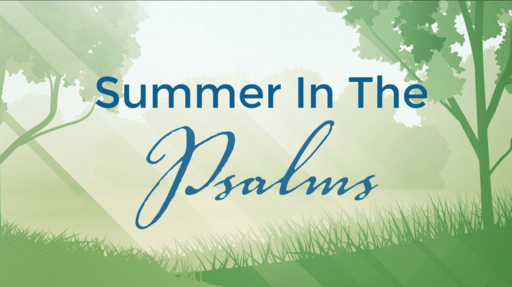Where Does God Work

Notes
Transcript
Where Do We need God, and where does God show up to work? Is God like a clockmaker who divinely wound the clock of existence and then uninterestedly walked away? Is God like a personal answer provider like an 8-ball with a 15-year old girl shaking it asking, “does he like me, Does he like me, does he like me?”
How does God interact with the universe, and humans in it, and what are human’s place in the cosmos?
The last question first. What are human’s place in the cosmos?
an anthropocentric perspective sees humans as the most important entity in the cosmos. Earth and anything in it is for our taking. This can appear to be a biblical idea, but it has some flaws.
In contrast to anthopocentric would be biocentric, where concerns are “oriented toward protecting non-human organisms and nature as a whole.”* While this also has some interesting thoughts to add to the equation, what is missing is God himself.
As Christians we should be Theocentric in our approach and Christocentric in our thinking. When we rise up, we recognize that God is the one we are submitting to on a daily basis in obedience to His revealed Word in the Bible, and He is the one who does the work.
“Psalm 127 reminds us that we are not God. Gratefully, this psalm reorients us with a proper theological anthropology in light of everyday life and, more significantly, in light of God”
A Song of Ascents. Of Solomon. 1 Unless the Lord builds the house, those who build it labor in vain. Unless the Lord watches over the city, the watchman stays awake in vain. 2 It is in vain that you rise up early and go late to rest, eating the bread of anxious toil; for he gives to his beloved sleep. 3 Behold, children are a heritage from the Lord, the fruit of the womb a reward. 4 Like arrows in the hand of a warrior are the children of one’s youth. 5 Blessed is the man who fills his quiver with them! He shall not be put to shame when he speaks with his enemies in the gate.
John Goldingay notes that Psalm 127 is comprised of two four-line poems. Each poem begins with a reference to God’s involvement in human life and concludes with a statement concerning the implications of that claim for human life
Within Israel’s tradition Solomon is honored for having built the temple of Jerusalem and secured the city (cf. 1 Kgs 6–7).
1 Kings 6:7 (ESV)
7 When the house was built, it was with stone prepared at the quarry, so that neither hammer nor axe nor any tool of iron was heard in the house while it was being built.
31 The horse is made ready for the day of battle, but the victory belongs to the Lord.
In verse 1 he confesses that all human activity is useless unless God is actively involved. In verse 2 he confesses that the toilsome life depicted in the first three lines of the verse likewise is vain or useless; it does not secure one’s life
Ec 5:12 “12 Sweet is the sleep of a laborer, whether he eats little or much, but the full stomach of the rich will not let him sleep.”
25 “Therefore I tell you, do not be anxious about your life, what you will eat or what you will drink, nor about your body, what you will put on. Is not life more than food, and the body more than clothing?
The Hebrew word nahalah, often translated as “heritage” or “inheritance,” typically refers to the land given to Israel by Yahweh. The term appears repeatedly in the book of Joshua (50×) with reference to the land apportioned among the tribes
12 For I know how many are your transgressions and how great are your sins— you who afflict the righteous, who take a bribe, and turn aside the needy in the gate.
12 I am the talk of those who sit in the gate, and the drunkards make songs about me.
1 Now Boaz had gone up to the gate and sat down there. And behold, the redeemer, of whom Boaz had spoken, came by. So Boaz said, “Turn aside, friend; sit down here.” And he turned aside and sat down.
*https://www.ncbi.nlm.nih.gov/pmc/articles/PMC4138930/#:~:text=Anthropocentric%20concerns%20for%20the%20environment,and%20nature%20as%20a%20whole.